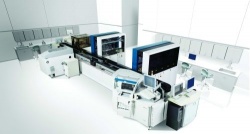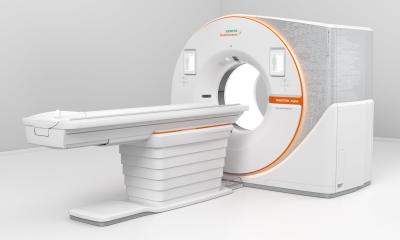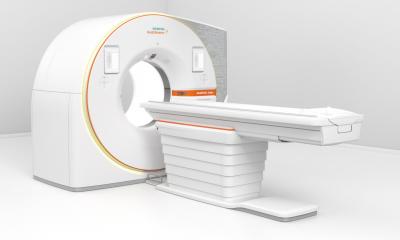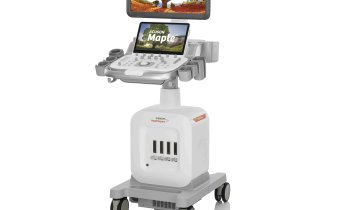Automation evolving from customers’ own needs
Adaptability and scalability were the buzz words at the Siemens Healthcare Diagnostics booth at this year’s IFCC-Worldlab and EuroMedLab congress. With the ongoing generation of their highperformance automation systems as an example, the company offers a multi-discipline architecture that enables a lab team to build an automation solution following their individual demands.

Represented by a distinctive track configuration positioned centrally in its exhibit, Siemens reinforced its new vision for ‘…total lab automation that promotes ever-more adaptable architecture, enabling lab teams to build an automation solution based on their specific testing requirements,’ the company explains. ‘Limitations in space are minimised because the customer can decide where to build their solution rather than being forced to fit the building to a predefined system.’
Along with its vision for how automation will evolve, the company also discussed its signature, high-performance ADVIA Automation Solutions and its compact StreamLAB Automation Solution, both of which deliver a wide range of throughput, extensive test menus, and multiple lab configuration set-ups. ‘IFCC-WorldLab also served as an important stage for the latest in Siemens Diagnostic IT solutions, including ADVIA CentraLink, a data management system providing the customer with a central platform for consolidating lab data and automating workflow activities with the result of delivering faster and more secure data,’ the company points out. ‘It seamlessly integrates and consolidates patient and quality control data from multiple connected instruments.
As a proven performer in high-volume, automated or non-automated hospital and commer cial labs, ADVIA CentraLink streamlines processes and automates patient and quality control data management.’ Siemens also showcased the syngo Lab Process Manager. Now in development, this integrates process control with data management to deliver realtime information that can prompt proactive action. The fully automated Vitamin D Total Assay To meet increasing demands for vitamin D testing, Siemens is now offering a fully automated Vitamin D Total assay that is traceable to LC-MS/MS (liquid chromatography-mass spectrometry), considered a gold standard in testing. Vitamin D deficiency has long been associated with rickets in children and osteomalacia in adults, and long-term insufficiency of calcium and vitamin D can lead to osteoporosis.
More recently, studies are linking vitamin D deficiency to several other disease states, such as cancer, cardiovascular, diabetes and autoimmune diseases. Siemens Vitamin D Total assay on ADVIA Centaur Systems measures a patient’s total 25(OH) vitamin D level— ~100% of D2 and D3, the two major forms of vitamin D. The most widely used indicator of vitamin D status is the measurement of the metabolite 25-hydroxyvitamin D in either serum or plasma. Because circulating 25(OH) vitamin D can arise from hydroxylation of either vitamin D2 or D3, measurement of total 25(OH) vitamin D (both D2 and D3) is essential for accurate assessment of vitamin D status.
Employees education with PEP ‘The Personal Education Plan (PEP), a web-based teaching platform offered by Siemens as part of their Customer Care portfolio is a real premiere in the market,’ the company points out. ‘As the only fully customised, competency-based education software in the diagnostics industry built on knowledge, skills and job-specific laboratory responsibilities that can be accessed anywhere at anytime, PEP enables lab managers to individually assign and track their employees’ personalised education paths depending on each employees’ knowledge needs and specific responsibilities. And, by doing so, lab managers can better meet regulation requirements for individual competency benchmarks.’ The library itself contains all courses for all Siemens clinical laboratory products as well as information on disease states and general laboratory information. ‘This promotes the possibility to perform personalised education for every level and type of work – even for hospital employees such as nurses using Point-of- Care instruments,’ Siemens points out.
‘The background is that clinical labs have become the gateway for new science of laboratory testing. They have become responsible to educate nurses or physicians with respect to what new assays mean and how they can be used in patient care.’ explains Anne Palladino, Global Customer Care Manager, adding: ‘Normally you have to invest plenty of time for training lessons without the possibility to check the individual level of knowledge. With PEP, the lab manager can decide by himself which lesson should be learned by whom and can control the results afterwards. And – the lessons can be performed anywhere and at anytime.’
20.06.2011











